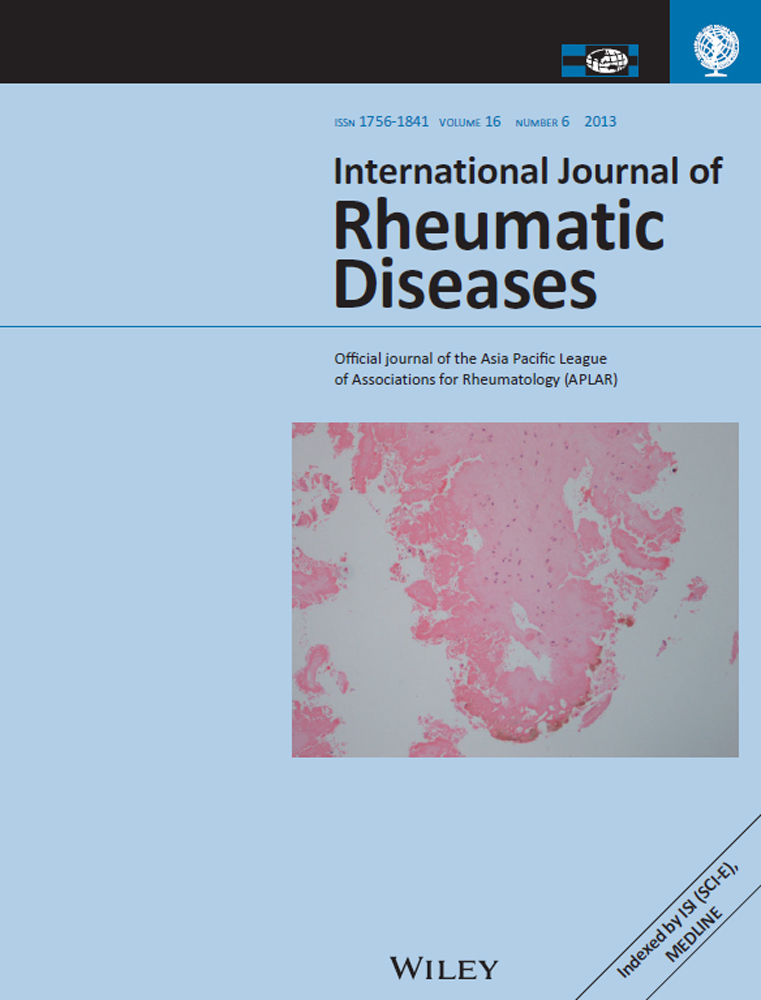No evidence of association between CTLA-4 polymorphisms and systemic lupus erythematosus in Iranian patients
Abstract
Aim
Cytotoxic T lymphocyte-associated antigen-4 (CTLA-4) is an important negative regulator of T-cell responses. CTLA-4 polymorphisms have been confirmed to be associated with several autoimmune diseases such as systemic lupus erythematosus (SLE). We analyzed the role of CTLA-4 polymorphism at positions −1661 and −1722 in Iranian patients suffering from SLE.
Methods
One hundred and eighty SLE patients and 304 ethnically and age-matched healthy controls were studied. Polymerase chain reaction restriction fragments length polymorphism (PCR-RFLP) was used to analyze the genotype and allele frequencies of these polymorphisms.
Results
There was no significant association between the studied genotypic and allelic frequencies between SLE patients and the controls. Although the TC genotype in 1722TC polymorphism was more common among the control group, the correlation was not statistically significant.
Conclusion
Our results suggest that the −1661AG and −1722TC polymorphisms in the promoter region of the CTLA-4 gene does not play any role in genetic susceptibility to SLE. However, further studies on larger sample sizes are needed to approve our results.




